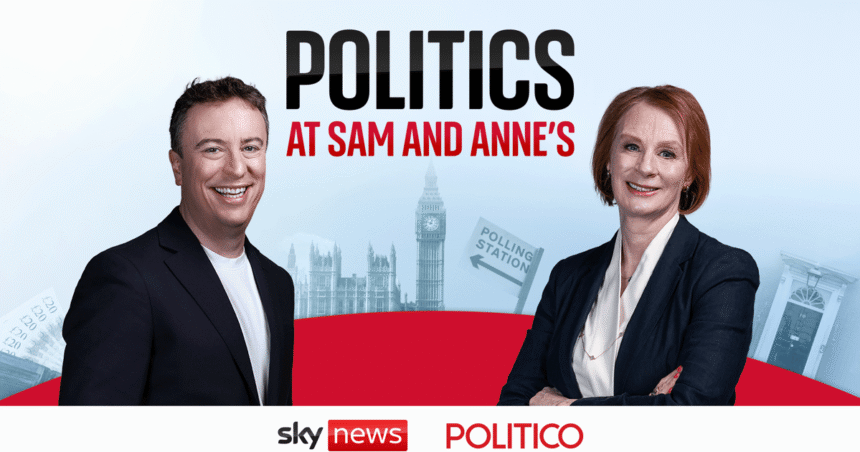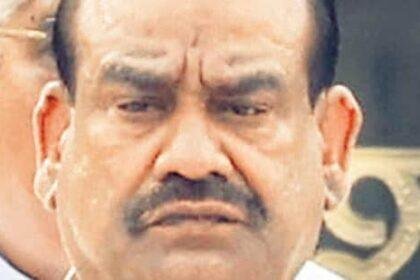UK Prime Minister’s Trade Mission to India: A New Chapter in Bilateral Relations
As the UK seeks to bolster its global trade relationships post-Brexit, Prime Minister Rishi Sunak’s recent trip to India marks a significant step in this direction. The Prime Minister, accompanied by a large trade and business delegation, embarked on a journey that spans over 4,600 miles, aiming to strengthen ties with one of the world’s fastest-growing economies.
A Warm Welcome in Mumbai
Upon arrival in Mumbai, Sunak was greeted with enthusiasm, as banners and posters adorned the streets, reflecting the warm sentiments of the local populace. This reception underscores the importance of India as a strategic partner for the UK, particularly in the realms of trade and investment. The Prime Minister’s visit comes at a time when both nations are looking to enhance their economic collaboration, especially in sectors such as technology, renewable energy, and pharmaceuticals.
Historically, the UK and India have shared a complex relationship, rooted in colonial ties but evolving into a modern partnership focused on mutual benefits. The current trade relationship is valued at approximately £24 billion, and both countries are keen to increase this figure significantly. The UK government has set an ambitious target of doubling trade with India by 2030, a goal that reflects the growing importance of India in the global economic landscape.
Trade Deal Prospects: Opportunities and Challenges
While the visit is laden with optimism, questions remain about the potential impact on the ongoing trade negotiations between the two nations. The UK and India have been in discussions for a free trade agreement (FTA) for several months, with both sides expressing a desire to finalize terms that would facilitate easier access to each other’s markets. However, the complexities of such negotiations cannot be understated.
Key issues include tariffs on goods, intellectual property rights, and labor standards. The UK is particularly interested in securing better access for its services sector, which is a significant part of its economy. Conversely, India seeks to enhance its agricultural exports and gain more favorable terms for its manufacturing sector. The outcome of these negotiations could either pave the way for a robust trade partnership or create hurdles that may hinder progress.
Domestic Political Landscape: The Conservative Party Conference
Back in the UK, the political landscape is equally dynamic. The Conservative Party conference in Manchester is underway, with key figures like Kemi Badenoch preparing to address party members. Badenoch, the Secretary of State for Business and Trade, is expected to outline the government’s vision for economic growth and the role of international trade in achieving these goals.
The timing of Sunak’s trip coincides with the conference, highlighting the government’s commitment to international trade as a cornerstone of its economic strategy. As reported by various media outlets, the Prime Minister’s focus on India aligns with the broader narrative of the Conservative Party, which has increasingly emphasized the importance of global trade in a post-Brexit context.
The Broader Economic Context: EU and US Trade Tensions
While the UK seeks to strengthen its ties with India, it faces challenges on other fronts, particularly concerning its relationship with the European Union and the United States. The ongoing trade tensions between the EU and the US have raised concerns about their potential impact on British industries, notably British Steel. The tit-for-tat tariffs imposed by both sides could create a precarious situation for UK manufacturers, who rely on both markets for exports.
The British Steel industry, in particular, has been vocal about the risks posed by these trade disputes. As reported by industry analysts, the imposition of tariffs could lead to increased costs and reduced competitiveness for UK steel producers. This situation underscores the interconnectedness of global trade and the need for the UK to navigate its relationships carefully.
Conclusion: A Pivotal Moment for UK-India Relations
As Prime Minister Sunak engages with Indian leaders and businesses, the outcomes of this trip could have lasting implications for UK-India relations. The potential for a free trade agreement represents a significant opportunity for both nations to enhance their economic ties. However, the complexities of negotiations and the broader geopolitical landscape will play a crucial role in shaping the future of this partnership.
In the coming days, as the Conservative Party conference unfolds and Kemi Badenoch addresses party members, the focus will remain on how the government plans to leverage international trade to drive economic growth. The interplay between domestic politics and international relations will be critical as the UK navigates its post-Brexit identity on the global stage.











